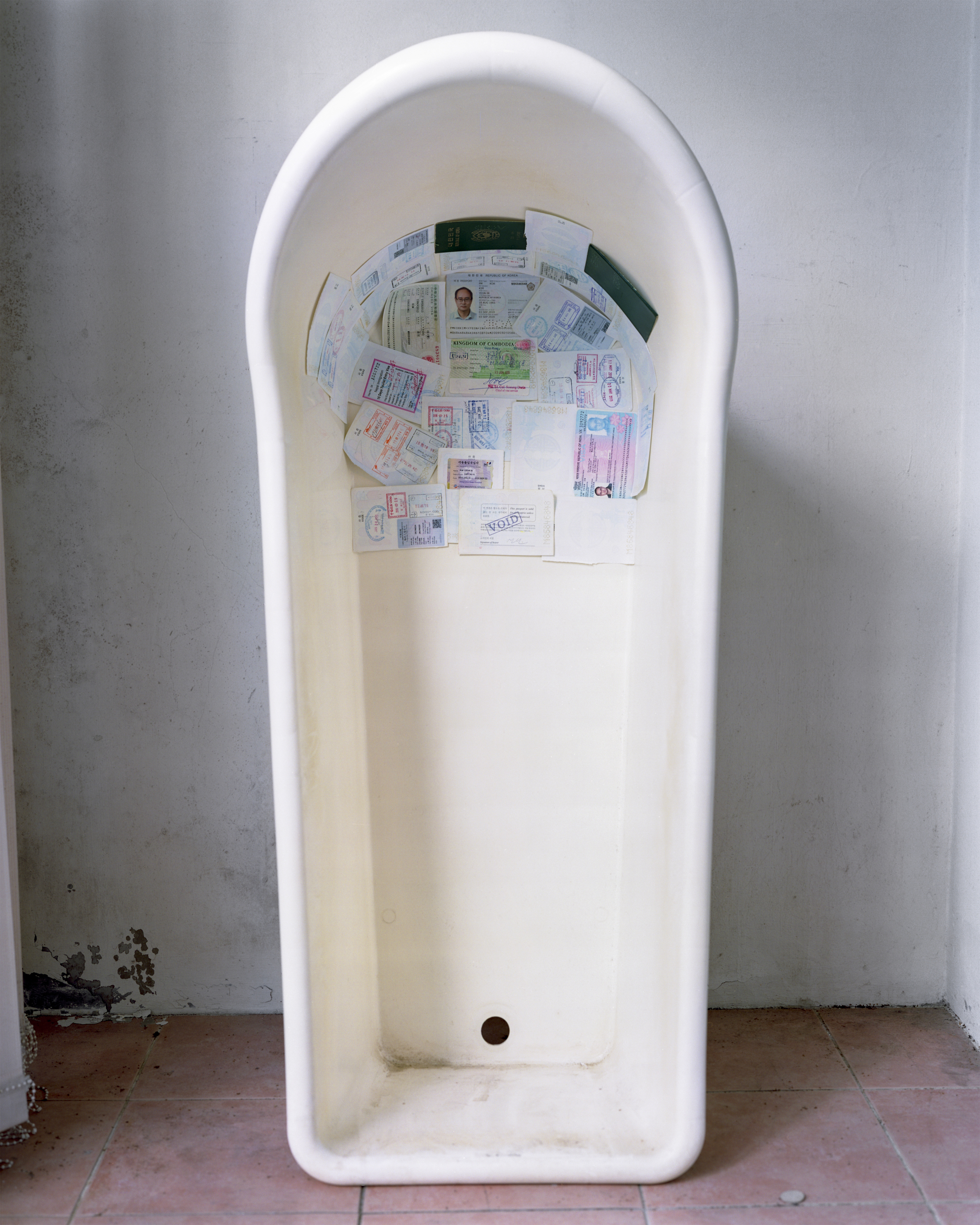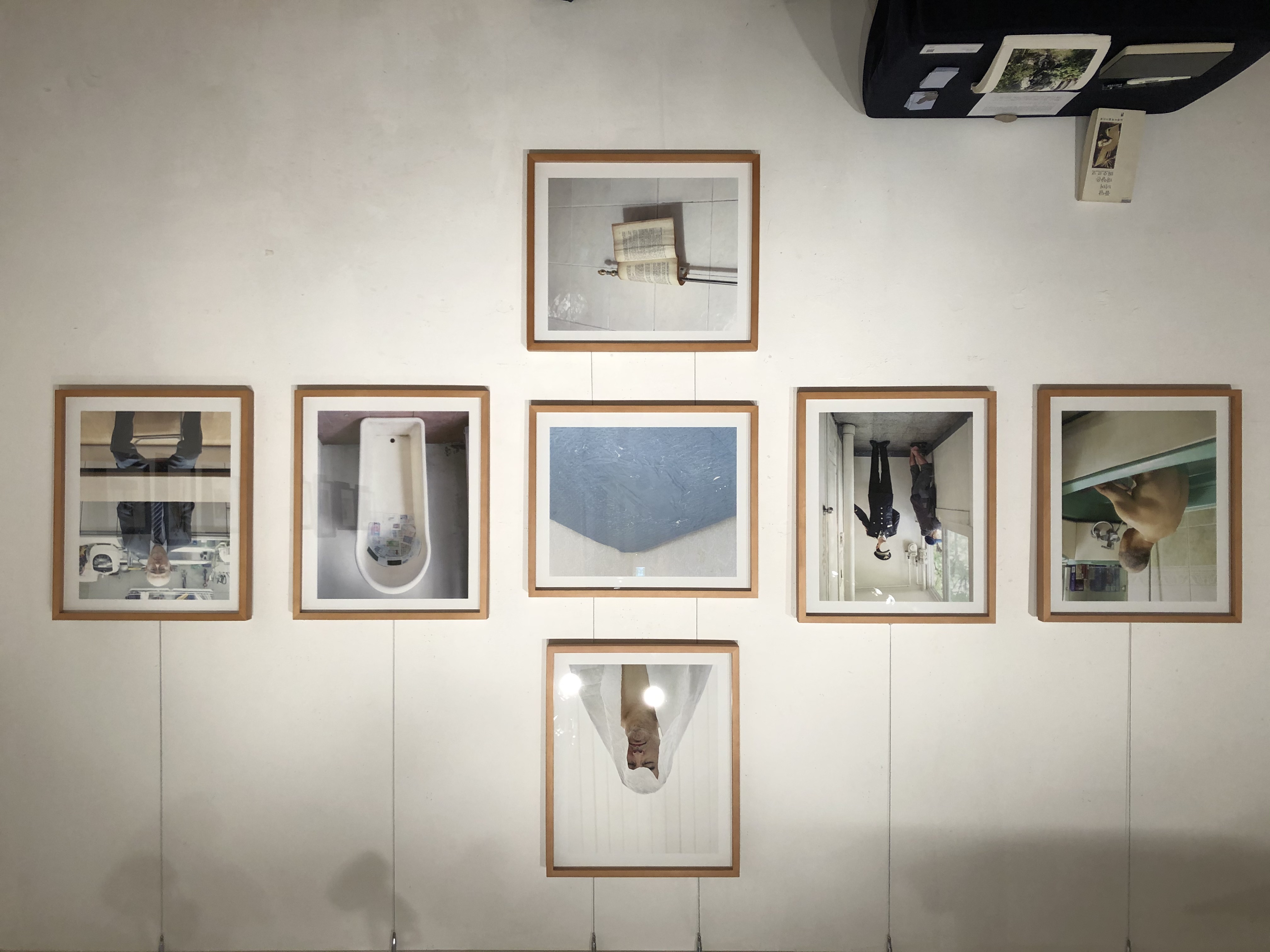














이몽 Imong, 2019-2021
충청남도 홍성에서 태어난 김연인은 대학생 때 민주화운동을 하다 구속되어, 재학 중이던 대학에서 제적당한다. 그 이후로 ‘힘’이라는 출판사를 내어, 계속해서 운동권에서 활동한다.
1983년 집회 및 시위에 관한 법률 위반으로 징역 1년 6월,
1989년 국가보안법 위반으로 징역 1년,
1990년 국가보안법 위반으로 징역 10월,
1994년 국가보안법 위반으로 징역 1년.
그리고 2003년, 민주화운동 관련자 인정 서류가 그의 집으로 날아온다.
2019년, 그의 아들은 경찰이 되고, 미묘하게 혼란스러운 상황이 벌어진다.
‘이몽(異夢)’이라고 읽는 이 이야기는 작가의 집으로 민주화운동 유공자 인정 서류가 날아왔던 여덟 살의 그날부터,
엄마에게 “민주가 뭐야?” 하고 물었던 날부터, 서류에 ‘보상금’이라는 이름으로 찍혀 있던 ‘0’ 일곱 개를 본 그날부터 시작된다.
어떤 집단의 권력이 개인에게 순기능으로 작동하지 않았다는,
그런 판타지 속에 살아왔던 사람에 대하여.
이야기를 읽어내는 방법을 찾지 못해, 꿈만 같은 세상을 허우적대는 그의 딸이.
또, 그의 아들이.
During the 1980s military regime in South Korea, Yeon-In Kim, born in South Chungcheong, was expelled from university for participating in the democracy movement. He founded the publishing house "Him". He continued his activism, serving a total of fifty-two months in prison under the Public Order Act and the National Security Act between 1983 and 1994.
In 2003, a document recognising his contribution to democratisation arrived at his home. In 2019, his son became a policeman—a subtly disorienting twist in their family history.
I was eight when the document arrived, asking what “Minjue(democratisation in Korean)” meant while staring at the compensation written with seven zeroes. I found “absurdity” through the story of his son, who became a police officer after the country became democratic. This speaks to both the history of dictatorship my generation could never imagine and his emotional conflict when confronting his son in uniform.
It is a story about a society that failed to protect the individual, and about a man who lived through what could only be described as a kind of surreal dream.
This man in the photo is a protagonist in a fantasy-like scenario, returning to the very places where he was once arrested and tortured, but now standing tall, quiet, composed, and dignified. This photographic space captures the era that once felt like a surreal fantasy, materialising those intangible memories and emotions into a tangible form.
Imong (이몽), meaning different dream, reflects not only his journey, but the flawed society and the fragments of history. Violence and oppression no longer define him. His existence alone proves it.
Interview
Dummy Dumpy Image (KR), 2025

이몽 Imong
